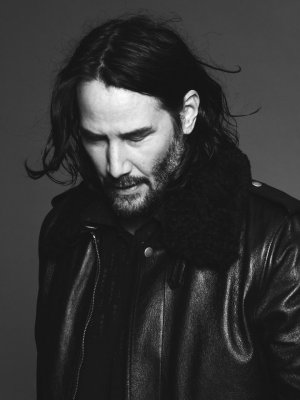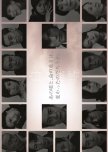What is the role of a doctor? What is the value of life? How do you prioritize when your work is saving lives? How does one life measure up to another? What is the difference between confident and arrogant? How does idealism become naivety? When does living your dream become living your nightmare? And when does the savior turn into a butcher? This drama attempts to address these questions, and engages the audience to reflect about our personal values and how we would deal with the situation while trying to survive in this world of the fittest.
Shiroi Kyoto is that kind of drama that just put everything else to shame. It made me question myself why I rated some other shows with the highest rating (which I'll definitely check and lower my 10 scores) cause honestly there are only few of them which can be side by side with this one. Glorious, grand and brilliant drama with top notch cast and script I see so rarely. Yes, it's an adaptation from a novel written by Toyoko Yamazaki (who also wrote novels Fumo Chitai and Karei naru Ichizoku which were made into amazing dramas too) but how drama was made is really mind blowing.
With an impressive cast and on location shooting in Poland, no expense was spared for this production and it did not fail to deliver an outstanding jdrama that grabs your attention from start to finish (It won the 40th Japanese Drama awards for best drama, best director, and best cast).
Set against a top notch university hospital in Osaka, Shiroi Kyoto depicts the power and politics struggles of the medical profession, explores the pitfalls of the health and medical system and unfolds the moral and ethical issues associated with the profession. Whole drama is pumped with vivid, varied and realistic characters to create a multi-dimensional story of the challenges and moral issued face by people working in the medical profession as they try to strike a fine balance between saving lives and surviving in a flawed and imperfect system. The show is quite overwhelming as it sucks you into the story with the ethical dilemmas the characters face and the profound issues it explores. I don't really know whether you should call this drama a typical medical drama. The hospital is just the setting. It shows you the "other side" of the medical profession: the backstabbing, the bribes, the real deepness of fights between best doctors, everything. This drama triggered a lot of thoughts in me about the competitiveness in the workplace, ethics, friendship, over-confidence and the true meaning of justice.
The Great White Tower, with sophisticated plot, supported by engaging storytelling techniques and a strong performance from the actors, catapults in front of all other series in terms of both rating and entertainment value. It offers an acute view of the politics within the medical profession, and subsequently the moral/ethical dilemmas involved in a medical lawsuit.
There were 2 parts to the story, with the first 10 episodes centered on Zaizen's fight for the hot seat as professor of the First Surgery Department, and the second part (which is more slow paced and maybe not everyone's cup of tea but trust me it's worth it) focused on a medical law suit which Zaizen was embroiled in soon after ascending to professor-hood. But In this story, no one was spared from the persecution, and there were no winners. It was not a case against Zaizen, rather it was an outcry against the entire medical system.
The writer created 2 strong and contrasting characters: Zaizen and Satomi. Zaizen is the realist and Satomi the idealist. Sometimes I see both of them as one. Satomi is Zaizen's conscience, calling out to him to return to the fundamentals of why he became a doctor; Zaizen is Satomi's critique, constantly reminding him that we all live in the real world and the playing the game is part and parcel of survival. Both graduated from the same class, and although they majored in different fields of medicine, they are passionate about their work and outstanding in their field. They share a deep respect for each other's work and are competitive in pursuing their dreams and beliefs. Satomi is earnest and true, and he does not conform nor does he participate in the politics and games of his peers and his superior. But Zaizen is deep into the game, and as he loses himself in chasing his goal, the means of how he does it diminishes in importance as his need for power possesses him. He believes that he can only be the best in his work and save more lives by gaining more power, but Satomi believes that he can only be the best in his work and save more lives by research and staying true to his conscience. Shiroi Kyoto tells of how, as both doctors pursue their dreams, the conflict of reality and idealism tears them apart. But through the whole drama until the end you could see respect and odd friendship between them, Zaizen truly admired Satomi and Satomi really wanted to help Zaizen. I loved their relationship and I sobbed and sobbed at the last scene between them like a baby. So emotional to the point I had to click on a pause button.
The Zaizen character is the most interesting one. In the end, the story got me empathizing with him. And as for Satomi's character, he is the brave yet burdened lone ranger on this path. And like Zaizen, he is fearless as well in holding on to what he believes is the right thing to do. His character is the most admirable one and he is the doctor and a man who deserved my full respect, who fights for the truth until the last breath even all alone and never giving up always staying hopeful- a true idealistic.He represents a hopeful but poignant reminder of how few people can stand up for their ideals. But this drama does not condemn those people who can't, it gives good reasons too on why it isn't easy to maintain such ideals. Our drive for self-preservation, which is a very human characteristic, keeps us from our ideals.
I wouldn't categorize it in either the "dark" drama side (like Kono yo na hate, 1 million stars falling) or the "happy" drama side (like Hana Kimi), it's just... realistic I guess. And really sad and the most touching drama I've ever seen. There are so many emotional scenes, cancer itself is the most awful and sad illness and when that illness is in the main focus in entire drama, patients who survive, patients who die, all that struggle in family, sympathy from doctors, cruelness of the world system, it is only natural to deliver us too many tears and sobbing and affects us so deep.
The message it's trying to impart to audience is more meaningful, life is hard and there is no easy solution, but don't give in to despair or sadness, because no matter how bad it gets, it will always eventually get better, the choice is in our own hands.
Catch this jdrama it's life altering. Drama like no other, despite some flaws, it shows us that the the key to the doctor-patient relationship is the capacity to show grace to each other by the patient entrusting his life to the doctor, and the doctor valuing the life that he's been trusted with. And that is the essence. With assurance I dare to say that Shiroi Kyoto is drama that every single person on this world should see.
Was this review helpful to you?


 1
1




















